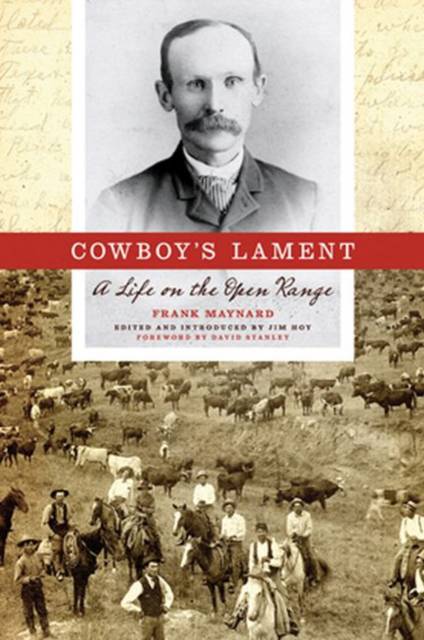
- Afhalen na 1 uur in een winkel met voorraad
- Gratis thuislevering in België vanaf € 30
- Ruim aanbod met 7 miljoen producten
- Afhalen na 1 uur in een winkel met voorraad
- Gratis thuislevering in België vanaf € 30
- Ruim aanbod met 7 miljoen producten
Zoeken
Omschrijving
In 1870, sixteen-year-old Frank Maynard left his home in Iowa and arrived in Towanda, Kansas, where he soon took a job helping to trail a small herd of cattle from Missouri to Colorado. Thus began his adventures as an open-range cowboy, a ten-year career that coincided with the peak of the great trail-drive era. Among the highlights of Maynard's time on the range were brushes with outlaws and encounters with famous lawmen, such as Bill Tilghman and Bat and Ed Masterson (he was in Dodge City when Ed was shot). On one drive Maynard was set upon and chased by irate German homesteaders; on another he narrowly escaped being killed by a man known as Slusher while driving horses from Kansas to Texas. But Maynard's most enduring contribution sprang from overhearing a version of an old Irish ballad in 1876 and reworking it as "The Cowboy's Lament," the standard most recognize today as "The Streets of Laredo." His role in adapting the song and his other colorful experiences on the trail have come to light with the recent discovery of his unpublished memoir. Now, alongside the frontier recollections of Charlie Siringo and Charles Colchord, Maynard's personal account offers a rare and revealing glimpse of the true Old West.
Specificaties
Betrokkenen
- Auteur(s):
- Uitgeverij:
Inhoud
- Aantal bladzijden:
- 248
- Taal:
- Engels
- Reeks:
Eigenschappen
- Productcode (EAN):
- 9780896727052
- Verschijningsdatum:
- 1/09/2010
- Uitvoering:
- Hardcover
- Formaat:
- Ongenaaid / garenloos gebonden
- Afmetingen:
- 157 mm x 234 mm
- Gewicht:
- 498 g

Alleen bij Standaard Boekhandel
+ 83 punten op je klantenkaart van Standaard Boekhandel
Beoordelingen
We publiceren alleen reviews die voldoen aan de voorwaarden voor reviews. Bekijk onze voorwaarden voor reviews.











